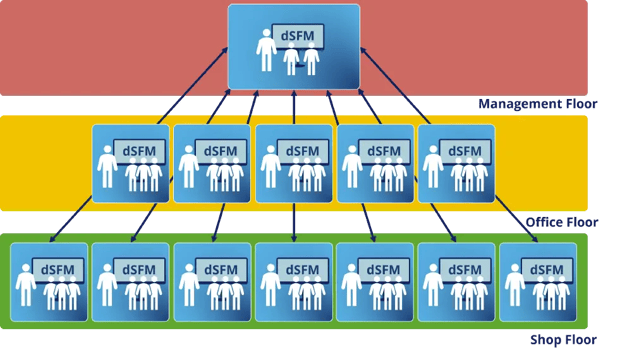How Multi-Zone Sourcing Can Save Your Supply Chain – And Your Sanity
Let’s face it, the past few years have been a crash course in supply chain fragility. If you’re a CEO or senior manager in manufacturing, you've...
All tasks in Shop Floor Management -
digitally supported with the functions of ValueStreamer®.
ValueStreamer® as a leadership tool supports the continuous improvement of processes and the optimization of collaboration.
Optimize processes in all areas of your business with digital Shop Floor Management. Learn more about the use cases.
4 min read
 Dr. Andreas Romberg
:
Mar 13, 2024 9:18:22 AM
Dr. Andreas Romberg
:
Mar 13, 2024 9:18:22 AM

Let's look at Operational Excellence from a different perspective.
In our opinion, it needs an explanation in view of the fact that many companies and organizations around the world are not yet taking advantage of significant improvements and savings potential.
OPEX is not, as is widely assumed, limited to production and other operational or blue-collar areas.
The question is: "What about those business processes that are either completely or largely cross-functional in office functions outside the operational areas?
The office processes in which OPEX can also help to achieve savings include the following:
In the "office-weighted" processes described above, Operational Excellence reveals considerable opportunities for improvement and savings.
Here are a few examples:
All of these processes are essentially about managing the resources involved in the work system in terms of effectiveness and efficiency so that there is as little waiting/unproductive time as possible and that the respective project or process flow does not come to a standstill.
It becomes dramatic when entire (multi-)project pipelines come to a standstill due to clogging and overloading of resources (employees and machines) without such control.
In general, cross-functional collaboration, such as in the above-mentioned or similar processes, is very complex and, for the most part, also very susceptible to disruptions and deviations in today's work systems. This complexity will continue to increase significantly in the future, as collaborations will increasingly take place across locations and companies in value creation networks and in global virtual teams.
Conclusion:
Our collaboration systems for global cooperation must become more resilient and robust!
The following helps to optimize collaboration systems:
 Graph: Leading teams across departments and hierarchical levels and managing collaboration with digital shopfloor management
Graph: Leading teams across departments and hierarchical levels and managing collaboration with digital shopfloor management
Your path to OPEX in Office Processes
Would you like to start implementing Operational Excellence in your office areas?
With our software for digital Shop Floor Management, we support you in optimizing your processes and anchor the OPEX mindset in your corporate culture based on our digital leadership approach.
Get in touch with us now!

Let’s face it, the past few years have been a crash course in supply chain fragility. If you’re a CEO or senior manager in manufacturing, you've...

What’s Going Wrong, and What You Can Do About It If you manage a mid-level manufacturing company, you know the pressure of meeting yearly goals. But...

When we think of Halloween, images of haunted houses, spooky masks and eerie fog may come to mind. But what if we told you that these elements are...

Lean Management - a prerequisite for digital transformation Lean management forms the basis for the introduction of other methods, such as...

More efficiency through digital transformation in value stream and shop floor management